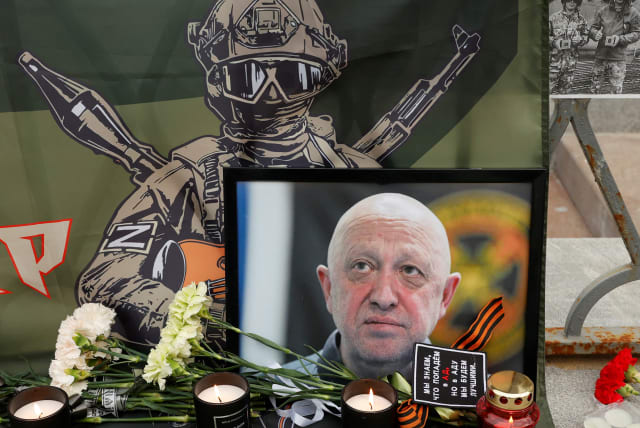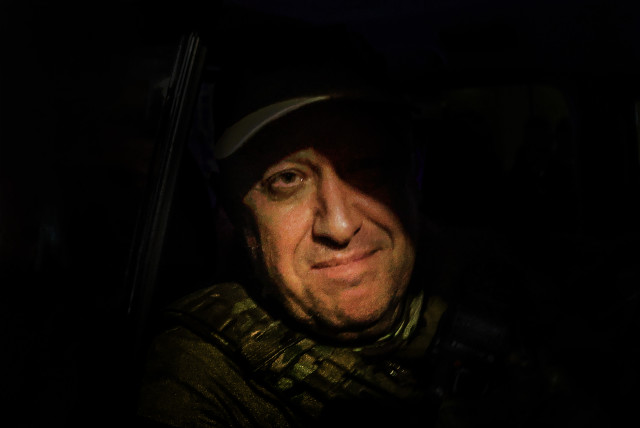Future of paramilitary Wagner Group unclear after leader's death - explainer

Russian President Vladimir Putin is suspected of being behind the death of rebellious Wagner Group leader Yevgeny Prigozhin.
Few people were surprised when it was revealed that one of the 10 passengers killed in a private plane crash in Russia on Aug. 23 was Yevgeny Prigozhin, the leader of the private military company the Wagner Group, who waged a short-lived mutiny against the Kremlin in June.
US and international intelligence agencies suspect that the crash was an assassination, caused by a bomb or some other form of sabotage while the plane was midair.
Russian investigators said that genetic tests had confirmed that Prigozhin was among the dead. Also killed in the crash were two of his Wagner Group deputies, Dmitry Utkin and Valery Chelakov.
“As part of the investigation of the plane crash in the Tver region, molecular-genetic examinations have been completed," Russia’s Investigative Committee said in a statement on the Telegram messaging app. “According to their results, the identities of all 10 dead were established. They correspond to the list stated in the flight sheet.” Prigozhin’s name was on the passenger list.
The crash came two months to the day after Prigozhin directed his private military troop to Moscow in a one-day rebellion that he aborted before reaching the capital. Prior to the rebellion, Prigozhin had been a close confidant of Russian President Vladimir Putin's, and many said that Putin was behind Prigozhin’s death as a payback for the attempt to topple Russia’s military leadership.
Messages after Prigozhin's death
After the crash, Putin expressed his “sincerest condolences” and promised to investigate.
“He was a man with a complex destiny,” Putin said of Prigozhin, but added that Prigozhin had “made serious mistakes in life.”
The future of the influential and mysterious Wagner Group remains unclear.
Following the failed rebellion, Belarusian President Alexander Lukashenko brokered a deal between Prigozhin and Putin, allowing Prigozhin and thousands of Wagner Group troops loyal to him to move to Belarus, Russia’s western neighbor, and avoid facing charges. The authoritarian Lukashenko is a close ally of Putin’s.
The Wagner Group was established as a private militia in 2014 with support from Moscow. Most of its fighters were recruited either from Russia’s elite regiments and special forces or from Russian prisons. In 2022, Prigozhin admitted to recruiting Russian prisoners in exchange for amnesties.
It grew in size and scope and became a key player in Russia’s military strategy, taking a crucial role in the Kremlin’s strategy to expand its influence in Ukraine, Africa, and elsewhere.
Wagner Group soldiers have fought as mercenaries in numerous conflicts in Africa, including in Sudan, Mali, and Mozambique, fighting alongside pro-government forces and guarding oil fields. The Wagner Group also deployed troops to Libya to support the Libyan National Army.
One of Prigozhin’s last appearances on camera was broadcast days before his demise. Carrying an assault rifle and dressed in camouflage military fatigues, he said he was in Africa working for Russia’s future.
The Wall Street Journal reported that after the failed rebellion, Prigozhin secretly traveled to Libya, Sudan, and the Central African Republic, where the Wagner Group has a strong presence.
He reportedly met with Libya's Gen. Khalifa Haftar at an eastern Libyan airport and demanded $200 million for his mercenary force’s role in protecting the country’s oil fields.
The Wall Street Journal also reported that Prigozhin met with commanders from the Sudanese Rapid Support Forces, who were carrying crates of gold from Darfur’s Songo mine. The paramilitary RSF and the Sudanese military have been engaged in bloody armed conflict since April.
“I need more gold,” Prigozhin reportedly told the RSF officers.
“I am going to make sure you defeat them,” he also promised, according to The Wall Street Journal.
Jerusalem Post Store
`; document.getElementById("linkPremium").innerHTML = cont; var divWithLink = document.getElementById("premium-link"); if (divWithLink !== null && divWithLink !== 'undefined') { divWithLink.style.border = "solid 1px #cb0f3e"; divWithLink.style.textAlign = "center"; divWithLink.style.marginBottom = "15px"; divWithLink.style.marginTop = "15px"; divWithLink.style.width = "100%"; divWithLink.style.backgroundColor = "#122952"; divWithLink.style.color = "#ffffff"; divWithLink.style.lineHeight = "1.5"; } } (function (v, i) { });

